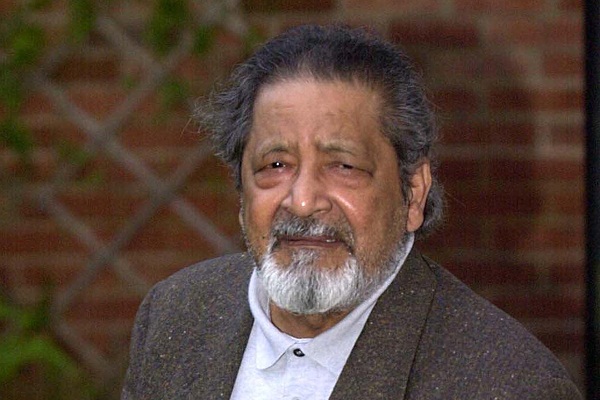If you have five minutes to spare this evening, read Teju Cole’s account of meeting V.S. Naipaul. Writing from the covetable position of a column in the hallowed New Yorker, Cole is man enough to admit feeling awkward when he meets Naipaul, and, worse still, when he is addressed by him as an equal. It’s a winning approach, candid rather than lovey, and both men emerge well from it.
Cole’s portrait of Naipaul is intriguing. Cole is not an unthinking admirer: he acknowledges that Naipaul has been ‘so fond of the word “nigger,” so aggressive in his lack of sympathy towards Africa, so brutal in his treatment of women.’ He appears to be honest, touchingly so. Frailty has reduced Naipaul to an ‘old rheumy eyed soul’, and left him with the characteristics of a precocious child: pronouncing canonical writers ‘bogus’ while resting a hand on Cole’s knee for support.
Cole reports that Naipaul, like most clever children, is not above ‘sly provocation’. Cole saw Naipaul’s suggestion that he chronicle their encounter as the incitement and the result exposes a much grander conceit. Cole writes:
‘I asked him about the biography by Patrick French, “The World Is What it Is,” which he had authorized. He stiffened. That book, which was extraordinarily well-written, was also shocking in the extent to which it revealed a nasty, petty, and insecure man. “One gives away so much in trust,” Vidia said. “One expects a certain discretion. It’s painful, it’s painful. But that’s quite alright. Others will be written. The record will be corrected.”’
The greatest innovators certainly contain multitudes; but how can words that are spoken in trust not be correct?






Comments